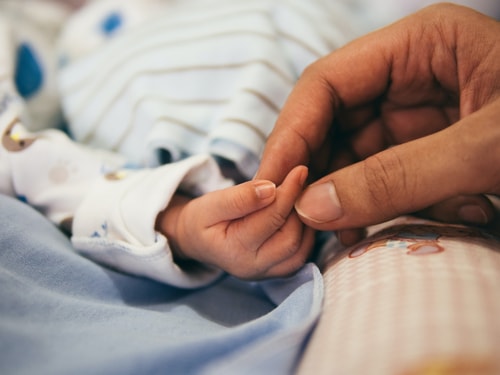This private member’s bill is being brought by Paul Givan MLA of the Democratic Unionist Party. It is the first piece of legislation on abortion to come before the Northern Ireland Assembly since the law was radically changed in October 2019 through intervention from MPs at Westminster while the Northern Ireland Assembly was dissolved.
In Northern Ireland abortion is permitted up to 12 weeks for any or no stated reason, up to 24 weeks for a threat to the mental health of the woman, and up to birth for ‘severe fetal impairment’. This bill seeks to repeal the part of the law which currently allows for abortion on the ground of ‘severe fetal impairment’ or non-fatal disabilities.
In Great Britain similar provisions have been used to regularly allow for abortion in the case of babies diagnosed in the womb with Down’s syndrome, cleft lip and palate, and club foot. However, in the Republic of Ireland abortion is not permitted on the grounds of a non-fatal disability.
The bill will now go before the Health Committee for further scrutiny as the next stage. On this reading, it received 48 votes in favour and 12 against, with Séin Fein abstaining from the vote, so their position on this issue is very important.
The numbers of abortions on these grounds are comparatively small, perhaps around one per cent of all abortions, with the vast majority, around 98 per cent, being for reasons which involve no physical risk to the health of the women or the unborn child. So while the Evangelical Alliance would ultimately like to see legislation proposed which goes much further in redressing these other grounds for abortion, we think that this bill represents a small but significant step in the right direction.
Unfortunately, the bill has not been met with unanimous support from those in the pro-life community. Despite sharing a common goal to see Northern Ireland’s abortion legislation overturned, the bill has exposed previous fault lines, which appear almost everywhere around the issue of abortion, between those who take an incrementalist approach to legal reform and those who take an absolutist approach.
Even a brief viewing of the debate from Monday highlights the totemic divisiveness and genuine sensitivities that any discussion on abortion raises for those involved. We will continue to work to find as much common ground as possible with both those taking an absolutist approach and pro-choice advocates. We continue to believe that both lives matter in every pregnancy, that women and their unborn children are worthy of dignity and protection.
We cannot agree with human rights which end human lives or dehumanise those with disabilities and will work towards a better story for all of those affected. To finish with the words of Heidi Crowter, disability rights campaigner, who herself has Down’s syndrome: “They need to see the person behind the extra chromosome, see their inner beauty.”
"We cannot agree with human rights to end human lives and dehumanise those with disabilities and will work towards a better story for all of those affected"



